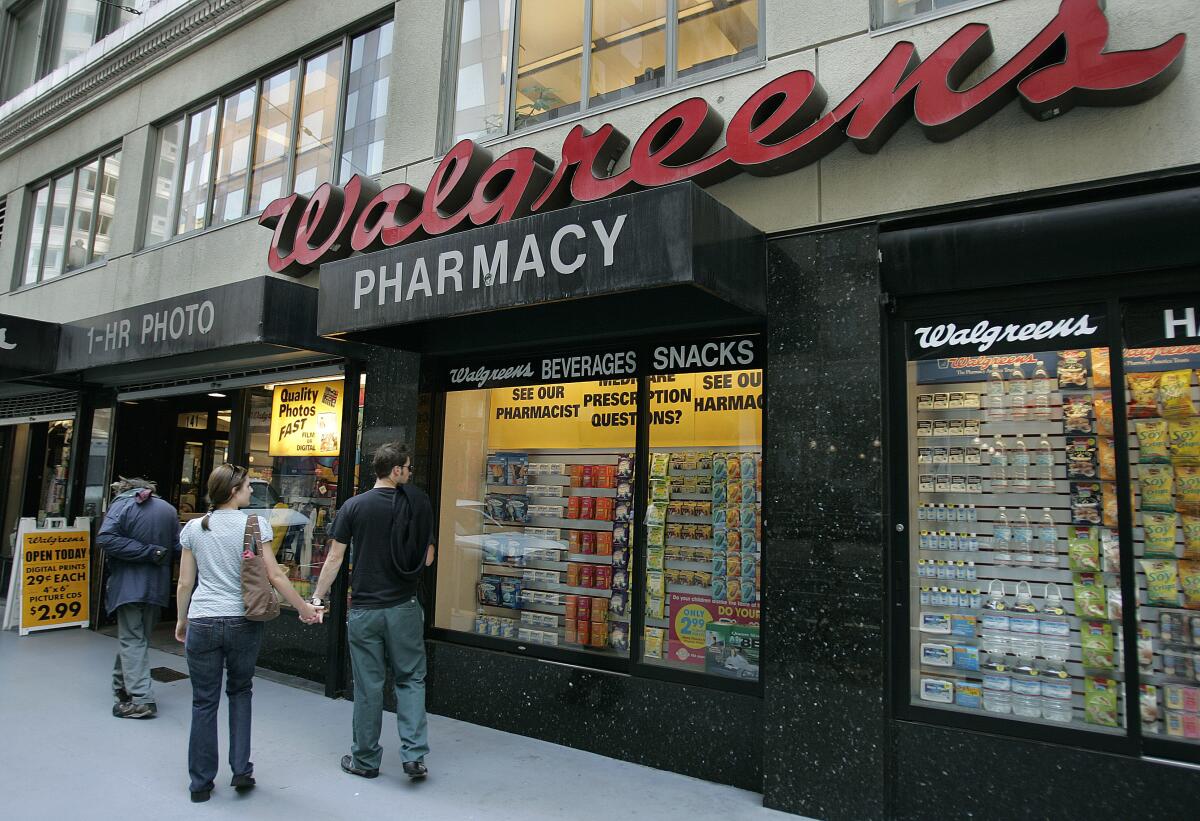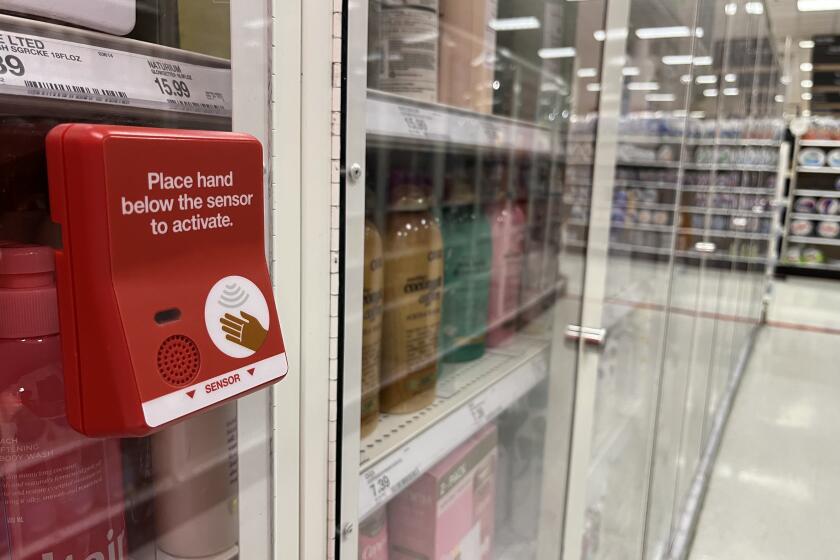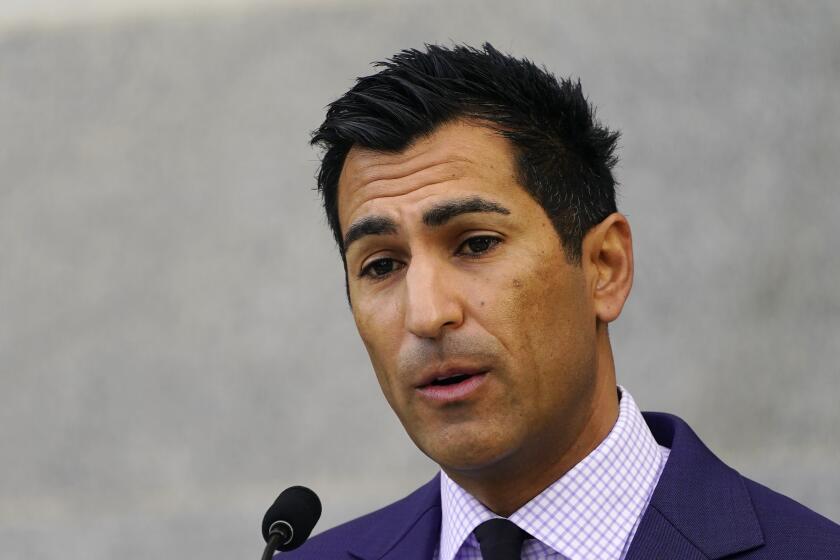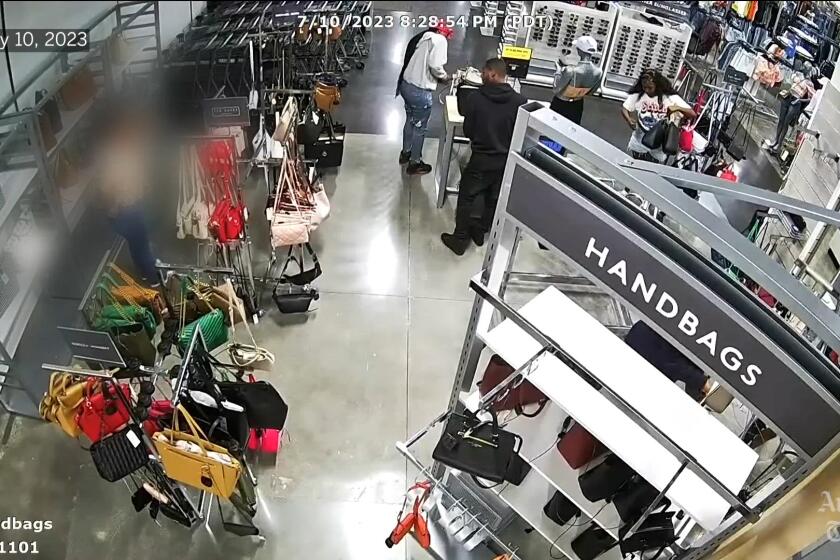California lawmakers want to curb retail theft, but say it’s not as easy as it sounds

While California lawmakers feel pressure to address concerns about crime, the murky and sometimes contradictory evidence of an increase in lawlessness has put legislators in a bind.
Recent studies show that retail theft has increased in some of California’s big cities — with shoplifting rates jumping nearly 50% in San Francisco since 2019 — while some rural and suburban areas of the state have seen a drop in those crimes.
Adding to the confusion, the National Retail Federation retracted a claim in an April report that said organized retail crime was responsible for $94.5 billion in missing merchandise nationwide in 2021. In reality, that number was discovered to be much lower.
Assemblymember Mia Bonta (D-Alameda), who sits on a recently formed special committee to address retail theft, said the inconsistent information makes it difficult to assess the issue as lawmakers prepare to reconvene in January and draft proposed laws to combat the rash of highly publicized thefts.
“I am concerned the way social media is not fully representing the extent of the incidences of crime we are experiencing or the root cause of that crime,” Bonta said.
Some California prosecutors and business leaders blame the state’s “toothless” laws against nonviolent retail theft, saying the problem has grown worse because of the lack of serious consequences for offenders.
They want to see changes made to the decade-old ballot measure, known as Proposition 47, that classified as misdemeanors certain drug possession offenses and nonviolent property crimes that do not exceed $950 in value.
But civil rights advocates are skeptical about returning to a tough-on-crime approach.
“I think it’s difficult. The reality is public safety issues are easy issues to get quickly driven by hyperbole and fear,” said Lenore Anderson, co-founder and president of Alliance for Safety and Justice and co-author of Proposition 47. “That’s part of the reason we’ve struggled as a state.”
There have already been two hearings this month to address this issue in Sacramento, one held by the bipartisan retail theft committee and the other by the Little Hoover Commission, an independent state oversight agency that was asked by the Legislature to examine these issues. Some lawmakers expressed frustration about how to move forward without clear data.
“For people in my district, the one bill people know is Prop. 47. But there is a lot of misinformation around that,” said Assemblymember Pilar Schiavo (D-Chatsworth), a member of the newly convened 11-member committee, which met for the first time in December to address these issues.
The criminal penalty for nonviolent retail theft that does not exceed $950 of merchandise is typically up to six months of jail time and no state prison time, but opponents assert that few serve their full sentences and some don’t show up to court. Critics also say that the measure doesn’t target repeat offenders.
Since 2019, shoplifting in San Mateo and San Francisco counties has increased 53% and 43%, respectively, the highest out of California’s 15 largest counties, according to Magnus Lofstrom, a policy director at the Public Policy Institute of California who detailed his report at a hearing this month before the Assembly Select Committee on Retail Theft.
A 2018 report from the PPIC found that recidivism rates decreased after Proposition 47 and that violent crime did not increase as a result of the measure.
Recent trends and historic crime data are nuanced in a way footage of a smash-and-grab on the news is not.
But one leading organization of state prosecutors says that has changed since the COVID-19 pandemic and the economic distress caused by job losses and government shutdowns.
Social media posts and news coverage showing brazen shoplifters smashing windows and grabbing whatever items they can have fueled fears that the more lax punishments under Proposition 47 opened the door to more crime.
Rachel Michelin, the president of California’s Retail Assn. and a panelist at a hearing last week, supports revising Proposition 47 in a November ballot measure, saying “it’s not about putting people in jail.”
“Our goal is to stop people from stealing [and] to deter the behavior,” she said. “Right now, the perception is you can go into a store, pack your bag up with stuff and there won’t be a consequence.”
California Assembly Speaker Robert Rivas names new committee chairs including Assemblymembers Buffy Wicks and Jesse Gabriel
Jeff Kreshek, a senior vice president at Federal Realty Investment Trust, which he said owns 102 shopping centers nationally and across California, said the problem is more pervasive and pronounced in the Golden State “than any other place we have property.”
But when asked to provide data by lawmakers at last week’s hearing, he came up empty-handed.
“I asked 15 retailers for data [before this] and they couldn’t provide it. I realize it makes your job harder,” he told the committee. “My data is stores closing, retailers not being able to hire. Consumers telling us they don’t feel safe going out.”
Many speculate that data collection on these crimes is so scattered because not every incident is being reported and there are inconsistencies in how police agencies categorize the incidents.
Fifty-nine percent of voters said they would support changing the law to potentially allow for more felony prosecutions.
Lynn Melillo, who sits on the board of the California Grocers Assn., said at the hearing held by the Little Hoover Commission this month that their “biggest” spending goes to security guards.
“It feels like there [are no consequences],” she said. “We feel we stand alone because we do call the police [...] they’re not always responsive.”
Several lawmakers on the committee agreed that these crimes could be prevented once there are restrictions on selling stolen goods online.
A bill from Sen. Nancy Skinner (D-Berkeley) addressed this issue and went into effect this year. The law requires online marketplaces to request certain tax, payment and contact information from high-volume third-party sellers to limit the sale of stolen goods. It also authorizes the attorney general to penalize any sellers or platforms that violate the bill’s requirements.
The newly appointed Assembly Labor and Employment Committee chair, Liz Ortega (D-San Leandro), said there “are still loopholes” in that law that need to be addressed.
“[That] is an area I really want to work on,” she said.
Kreshek of Federal Realty said regulating the sale of goods on platforms such as Amazon and Facebook Marketplace is “no small task.”
“But is that a part of a solution? Absolutely,” he said. “You need to take away the vehicle through which merchandise is sold. If you don’t make it harder to sell, you don’t resolve the problem.”
Politicians and the press bought into the panic over organized shoplifting, but the source of the alarming statistic now admits that it was a lie.
More to Read
Sign up for Essential California
The most important California stories and recommendations in your inbox every morning.
You may occasionally receive promotional content from the Los Angeles Times.















